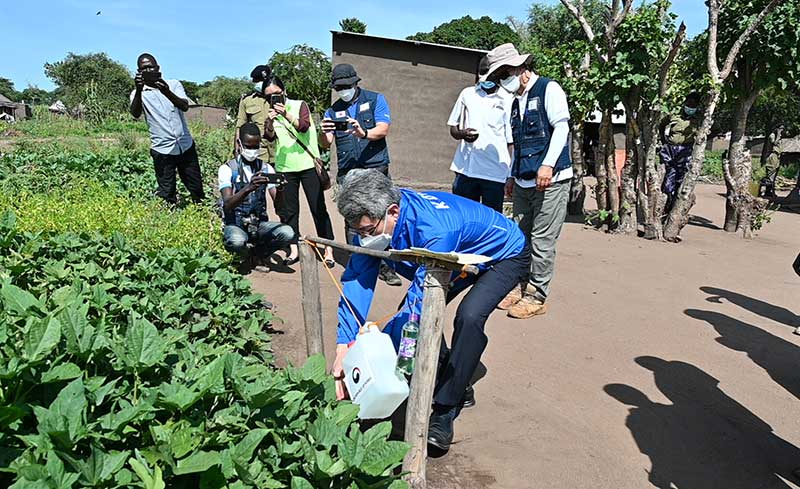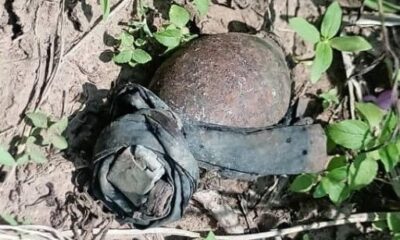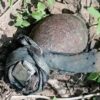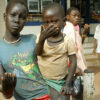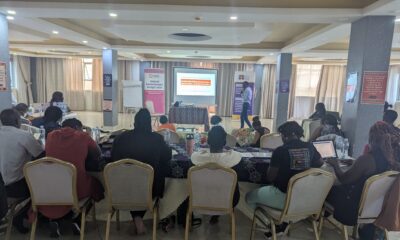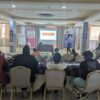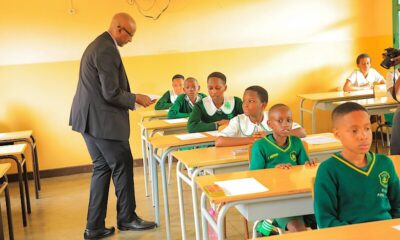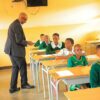News Feature
South Korea pledges to stand with Uganda no matter the difficulty
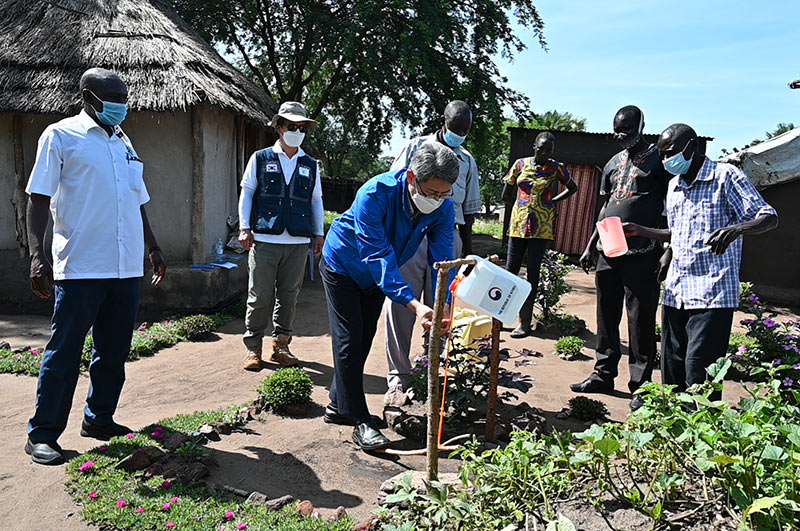
South Korea’s Ambassador Byung-Kyoo Ha while handing over the facilities to the 121,000 households in Palorinya refugee camp
It has been said that Uganda and Korea have a few things in common. Not only do the countries celebrate their national days in the month of October, they have also endured the effects of civil war. But the similarities end there. The past sixty or so years has proved to be a test case of how political decisions can result into dramatically different trajectories in human development, if one was to pit the two countries side by side.
While the people of Korea were successful in brushing aside the devastating effects of the 1950-53 Korean civil war, Uganda has been entangled in the quagmire of misrule, corruption and economic dependancy which have kept it tethered to aid. On the other hand, Korea has matched majestically forward and proudly sits among the big donor countries of the world.
In the seventies and eighties, Korea adopted an in-ward looking development strategy characterised by import-substitution and self-sufficiency. They closed their economy opting to manufacture whatever they needed by themselves. They were helped by the strategy of sending thousands of their students to work in industries in Germany, the United States and other developed countries who returned home with know-how on many things. Substantial aid from the United States, good governance and community mobilization, too played a major part in their transformation.
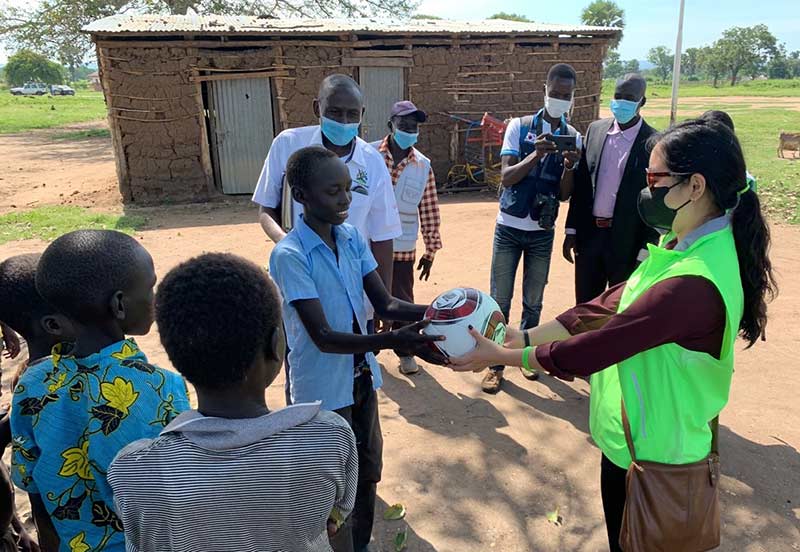
Korean officials donated soccer balls to refugee children in Palorinya
As a major economic power and the 11th biggest exporter nation, Korea is keen to export its development model to the rest of the world, and Uganda has been one of the focus counties of their foreign policy.
The past decade has been a period of rekindling love between the people of Uganda and their counterparts in Korea. This love affair, or is it diplomatic charm, started in May 2011 with the reopening of the Embassy of the Republic of Korea that had been closed in1994. During the last ten years, cordial relations between the two countries have sporadically and surprisingly so, blossomed into what one party now seeks to describe as an unbreakable bond.
Using the experience of war and devastation that the people in both countries share, the Republic of Korea, known to many Ugandans as South Korea, has been keen to demonstrate that a country can rise from the ashes of war and devastation to become a world power in a single generation.
Through a number of programmes aimed at transferring know-how, such as the National Farmers Leadership Institute that is based at Kampiringisa in Mpigi district, and numerous Community-based SaemaulUndong – or Bulungibwansi Self-help projects that are spread in many parts of Wakiso, Mpigi and Kampala, and other volunteer activities, the government of Korea has proved that a society can rise from poverty to prosperity if it people unite for a common purpose.
At the national level, South Korea has showered Ugandans with unprecedented generosity and quickly become one of Uganda’s key development partners with development assistance in spheres of health, education, agriculture and aviation development.
As a testament of their commitment to ending the plight and suffering of Ugandans and our refugee population, the Embassy of Korea last week chose to celebrate their National Foundation Day – commemorated every October 3rd, by making kind donations of hand washing facilities to a staggering 121,000 vulnerable refugees families in Palorinya Refugee Settlement in the West Nile district of Obongi.
The kind gesture, made instead of hosting a crowd for a sumptuous dinner at Sheraton Hotel, as has been the case in recent years, is a clear demonstration of solidarity with the vulnerable persons during a difficult period of displacement that has been compounded by the COVID-19 pandemic.
South Korea’s Ambassador Byung-Kyoo Ha while handing over the facilities to the 121,000 households, on Tuesday October 5, vowed that: “Korean government will never stop making efforts to promote health status and transformative livelihoods of 1.4 million refugees in Uganda.”
Korea has proved a reliable partner to Uganda in her efforts to shelter displaced persons from neighbours especially by providing food assistance through the World Food Programme, and supporting other activities in Uganda’s Comprehensive Refugee Response Framework and Food Assistance Convention.
With a donation of some US$43.3m, since 2018 alone, Korea ranks among Uganda’s top donors to the refugee assistance programme alongside the likes of the United States, Japan, Ireland and the European Union.
Ambassador Ha praised Uganda’s show of hospitality when it chose to play host to the largest number of refugees in Africa, but also for allocating the displaced families land to cultivate crops and share social services such as schools and health facilities with the host communities.
Ambassador Ha also reiterated his country’s readiness to stand with the rest of Ugandans facing difficulty especially during the COVID-19 Pandemic, when he said that Korea will maintain strong ties with Ugandan partners no matter the difficulties.
In the past one year alone, the government of Korea has unveiled three major development assistance programmes. These include;
Donation of Seven ambulances to Busoga sub-region to support maternal and child health service
In partnership with the government of Uganda and World Health Organization (WHO), KOICA (Korea International Cooperation Agency) recently donated seven brand new Toyota Ambulances worth UGX1.2bn, as part of the initiative to support the implementation of a US$ 10 million project intended to increase delivery of reproductive, maternal, neonatal, child and adolescence health services as well as improve health system in five poorly performing districts in Busoga sub-region.
The presentation of the vehicles marked the start of theimplementation of US$10m project.
Strengthening the capacity for waste management in Kampala
The government of Korea, again through KOICA, recently announced a grant of US$2.2m dollars (About UGX7.7billion) towards strengthening the capacity for solid waste and faecal sludge management in the Kampala Metropolitan area. This money will be channeled through project known as the Global Green Growth Institute (GGGI) to support KCCA’s waste management endeavors and will run from 2021 to 2023.
Support to Technical and Vocational Institutions embrace online learning
Technical education has been a major focus for the Korean government since they re-established diplomatic ties with Uganda. It’s little surprising therefore that a donation of computers to activate online learning during the era of COVID-19, was made a priority by the Embassy.
Previously, the Korean government has supported numerouseconomic activities in the agricultural sector through sensitization programmes in sustainable farming activities, food processing and value addition as evidenced with their support to the establishment of the Soroti Fruit Factory.
Ambassador Ha’s solemn pledge that they are ready to be Uganda’s partners for a long time, is another source of encouragement that aid, coupled with a determined society, may be a path that will ultimately lead to development.
Comments



